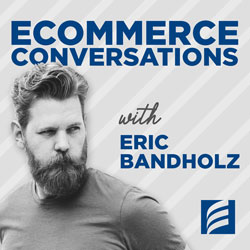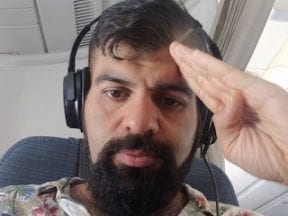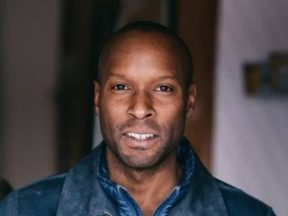Merchants often default to China for outsourced manufacturing. Yet competitive suppliers exist worldwide. For Palermo House, a direct-to-consumer provider of luxury furniture, Argentina is a natural source.
Marco Ferro is the company’s California-based founder with Argentina roots. He was born there, as were his parents, co-owners of the business.
In our recent conversation, I asked Ferro about importing goods from South America, shipping to customers, bootstrapping challenges, and more. The entire audio of our conversation is embedded below. The transcript is edited for clarity and length.
Eric Bandholz: Give our listeners a quick rundown of what you do.
Marco Ferro: I am the founder and CEO of Palermo House. We are a direct-to-consumer home goods furniture brand launched in 2020. We’re known for our Dune Lounger, a mix of a beanbag and a vintage chair. It comes in vegan leather, velvet, and some outdoor options. It’s stylish and comfortable, and people love it. Architectural Digest featured us. That’s been our hero product, although we have a vision to expand into other products.
My dad, my co-founder, designed the chair a few years ago. He comes from a family of architects. He created the lounger chair with a mid-century modern look. It fits well with that vibe and is minimalistic, functional, and comfortable. It’s not super rigid and yet stays in one shape. It molds to your body and changes when you sit on it.
Bandholz: Your suppliers are in Argentina versus China, like everyone else. What are the logistics hurdles in dealing with South America?
Ferro: I was born in Buenos Aires, Argentina, and so were my parents. My dad has many connections to Argentina and feels comfortable working there. It’s not the easiest country to transact with, with challenges around payments and political instability. But the situation is generally favorable. The exchange rates have been reasonable, so we’ve stayed for two-plus years.
As we scaled, we didn’t want to go to China or other countries that may require huge purchase orders. We wanted to scale comfortably. The good thing is that we have a lean and agile supply chain. We can acquire the lounger covers almost just in time, avoiding excess inventory. The filling that takes up more space is made here in California. The covers are made in Argentina, and we recently brought on a supplier in Columbia. But that’s not to say we haven’t ruled out going to China, India, or some other place where we can potentially find more cost efficiencies.
We ship customer orders unassembled in two boxes because large dimensions incur ridiculous oversized fees.
Bandholz: How do you acquire customers?
Ferro: We invest in paid marketing. Our primary channel is Meta — Facebook and Instagram. We also use paid search on Google. Our average order value is over $1,000. That gives us more room to cover acquisition costs.
We do organic Instagram, email, and SMS. We believe our products drive strong word-of-mouth referrals. We don’t have much data to validate that, but furniture, especially a product like ours, stands out in a home. When inviting friends over, it’s pretty visible, a mini showroom for future customers.
Bandholz: You’ve gone beyond the chair, offering home accessories, rugs, and throws.
Ferro: It’s been hard to sell anything that’s not the lounger. We haven’t found the right supplier for those products from a quality and price point. The rugs, for example, are 100% wool and hand-woven, made by artisans in the north of Argentina. I have a rug in my home. It’s thick and beautiful. But making these takes a long time, which is not great for business. They require some investment upfront as well.
Bandholz: Your product photography is fantastic.
Ferro: We shoot most photos ourselves. My dad plays a significant role as an architect. He has an eye for houses, and we will do some location scouting ourselves. It’s a collaborative effort, and we’ll choose the house. It’s mainly been here in Southern California. We use Peerspace — Airbnb is mainly for staying the night. We only need a couple of hours during the day. Peerspace is tailored for that use case for a premium price.
You have to get a lot done in the shoots in a limited time. We have big products. So it’s renting a U-Haul, going to the location, and moving big products around. At least they’re super light. We use male and female models as well as kids and pets. We try to show our products are for the whole family.
Bandholz: You’re bootstrapped?
Ferro: Yes. My dad, mom, and I are the owners. We haven’t raised any outside funding, so entirely bootstrapped. We’ve tripled annual revenue every year since our 2020 launch. That’s created funding challenges. We are starting to talk to potential investors. We like the idea of a partner in the space that can add value, capital, and talent.
In the meantime, we’ll continue running the business as bootstrapped. We’re working on our gross margin and specifically on our product cost. But we never compromise quality and feeling.
Bandholz: Where can people buy your stuff or reach out?
Ferro: Check out our website — Palermo.house. I’m on LinkedIn.






